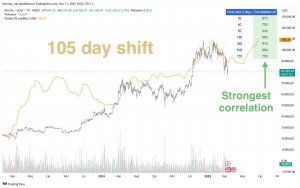Managers’ Search for Meaning

This article is a part of a series based on our Annual Strategic Report, The Future Is Gig. Download the report here.
Among the difficulties conventional businesses face these days, one of the more confounding can be found in a paradox of talent. While hiring managers say they look for innovation and passion in their employees, they need hard working, specialized talent. And the two types rarely go together.
The old corporate world’s ideal employee is specialized, neat, orderly, practical, good at following instructions, detail-oriented, and has lots of experience doing the particular job. However, there is also a big push for innovation, passion, and meaning in what they do. The combination of these traits is rare, creating a paradox in the hiring process. Companies are trying to find someone who is both specialized and passionate about their work, a combination that is hard to find.

This paradox is illustrated by Stanford Professor Bret Waters’s fascinating thought experiment: Would you hire Steve Jobs? Most people would say yes, but when you look at their requirements for jobs, he wouldn’t make the cut. Not to mention his personality wouldn’t be a good fit. Steve Jobs, like many other successful entrepreneurs, did not fit the conventional business personality type. He was innovative, passionate, and not afraid to challenge the status quo.
Despite the lip service given to wanting innovators and people who are passionate, most leaders and hiring managers actually want employees that will fit in as a cog in their machine. This is the opposite of passionate innovation. In fact, research finds that managers tend to reward passion — even if it’s not correlated with results. This creates a disconnect between what companies say they want and the type of employees they actually hire and reward.
The reason for this disconnect is that large corporations have an equation for the kind of employee they’re looking for based on their size and the regulatory landscape. This equation often favors the conventional personality type. In a 2014 report, Deloitte found that 88 percent of employees aren’t passionate about work and don’t contribute as much as they could. This suggests that the conventional business world’s preference for a certain personality type may be limiting its potential for innovation and productivity.





